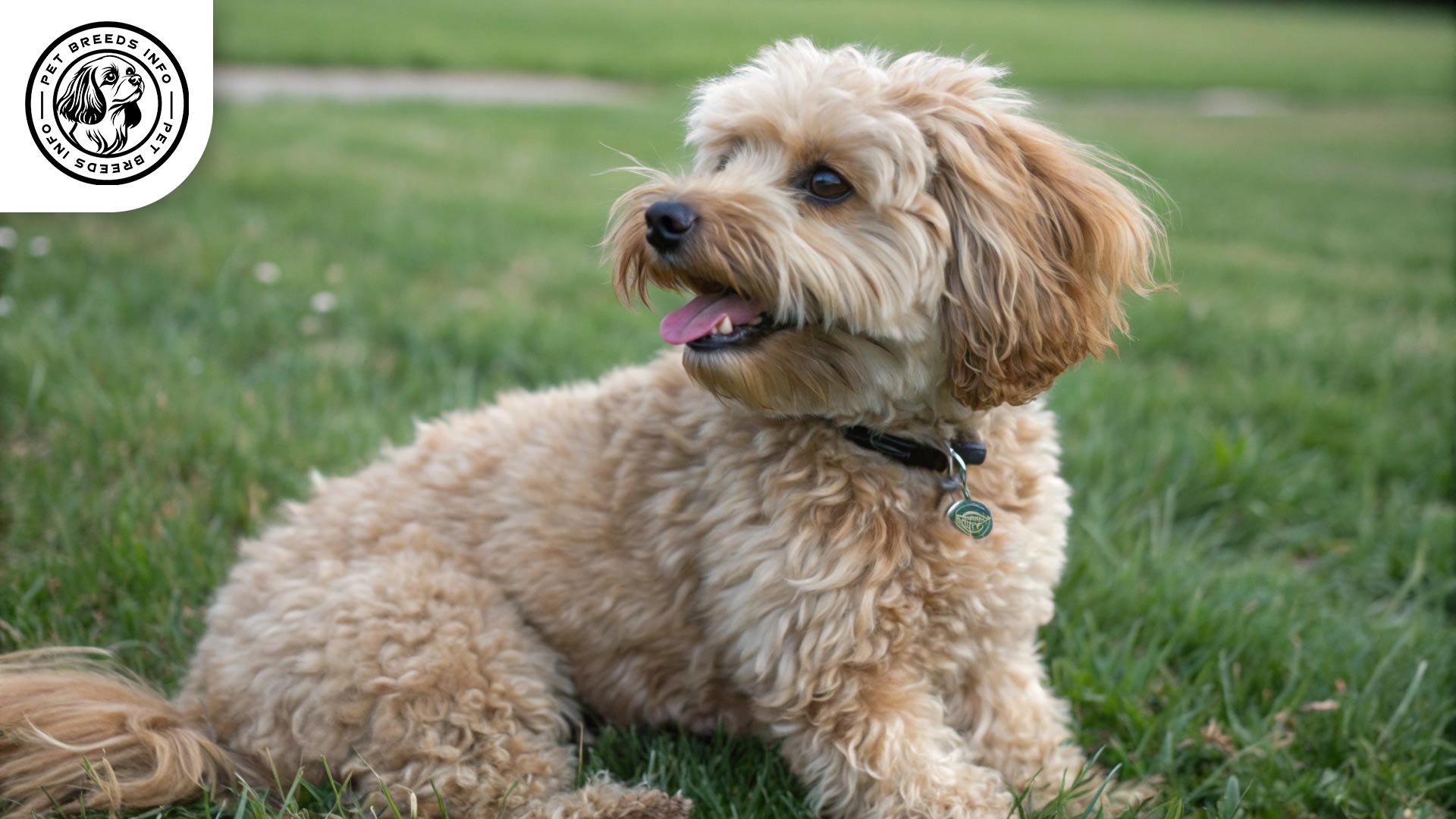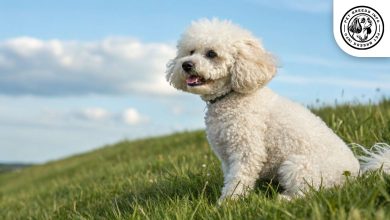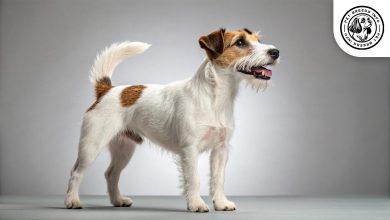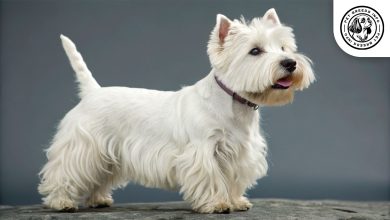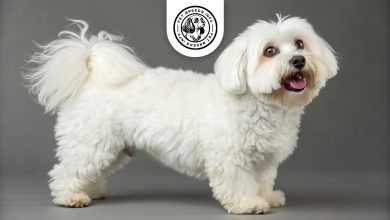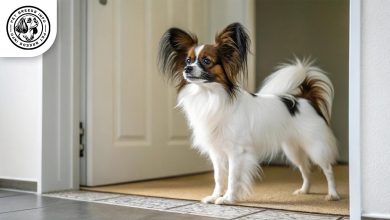Yorkipoo Dog Breed: Size, Health, Price & Personality
General Introduction of the Breed
The Yorkipoo, also known as the Yorkie Poo, is a hybrid dog breed that results from crossing a Yorkshire Terrier with a Poodle. This designer breed is popular for its affectionate nature, intelligence, and hypoallergenic coat.
Originating in the United States, the Yorkipoo was developed as a companion dog. The goal was to combine the best qualities of both parent breeds, such as the Poodle’s intelligence and hypoallergenic coat with the Yorkshire Terrier’s bold personality.
Table of Contents
| Weight | 4 to 15 pounds (1.8 to 6.8 kg) |
| Lifespan | 10 to 15 years |
| Diet | Balanced diet of high-quality dry or wet dog food, 2 to 3 small meals per day based on weight |
| Care | Regular exercise, frequent brushing, bathing, nail trimming, ear cleaning, dental care |
| Health | Patellar luxation, hip dysplasia, dental issues, allergies, sensitive stomachs |
| Color | Black, white, cream, apricot, gray, and combinations |
| Nature | Affectionate, loyal, intelligent, playful, social |
| Price | $500 to $3,000 USD |
Physical Characteristics
The Yorkipoo is a small-sized dog, with males and females typically weighing between 4 to 15 pounds (1.8 to 6.8 kg) and standing between 7 to 15 inches (18 to 38 cm) in height.
The breed has a soft, curly, or wavy coat that comes in a variety of colors, including black, white, cream, apricot, gray, and combinations of these shades.
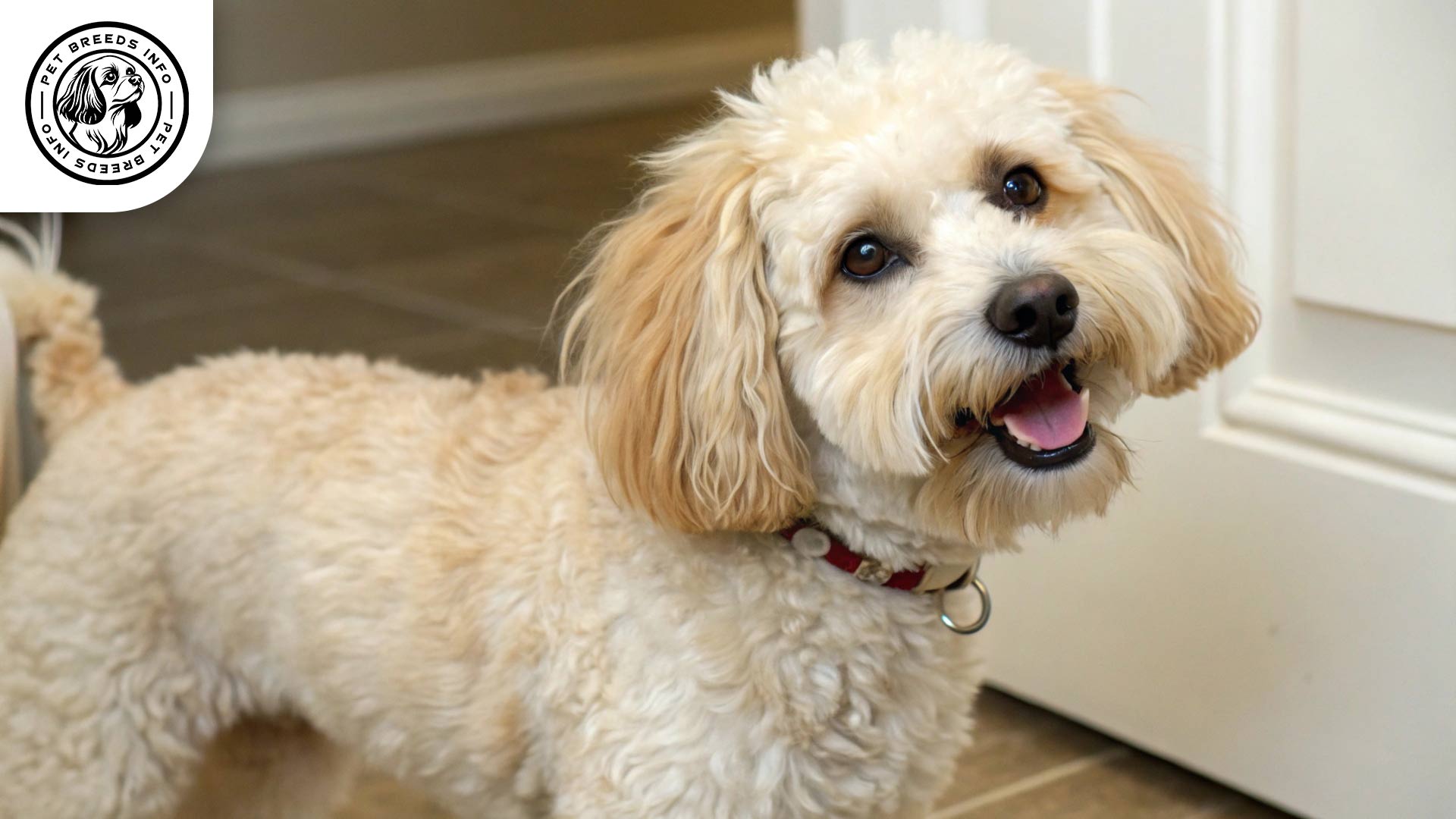
The eyes are round and dark, giving them an expressive and intelligent look.
The ears can be erect like a Yorkshire Terrier’s or floppy like a Poodle’s, depending on the dominant genetic traits.
The tail is typically medium in length and may be slightly curled or straight.
Their small size and proportionate features make them an adorable and compact companion breed.
Read More: Puggle Dog
Personality and Temperament
The Yorkipoo is an intelligent breed that learns quickly and enjoys mental stimulation.
They have a moderate to high energy level and require regular play and exercise.
This breed is known for its affectionate and loyal nature, often forming a close bond with its owner.
Yorkipoos are social dogs and generally get along well with children and other pets when properly socialized.
They are playful by nature and love engaging in interactive activities.
Due to their sensitivity, they may be easily affected by drastic environmental changes or loud noises.
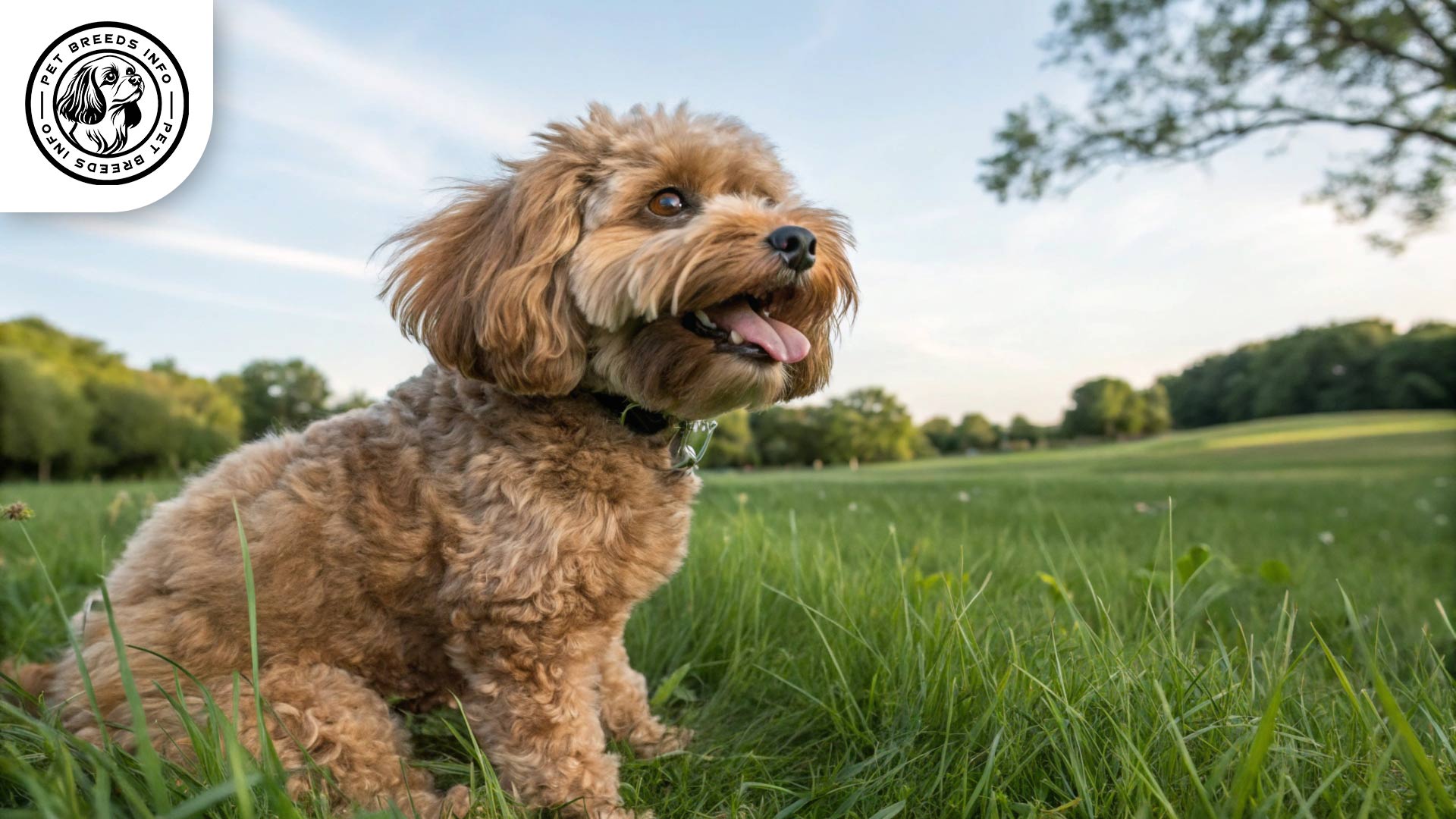
Care and Maintenance Requirements
The Yorkipoo requires regular exercise, such as short walks and interactive play sessions.
This breed adapts well to apartment living but also enjoys having space to explore.
Their coat is low-shedding but requires frequent brushing to prevent matting and tangles.
They are sensitive to extreme heat and cold, so moderate climates are ideal.
Regular hygiene routines including bathing, nail trimming, ear cleaning, and dental care are essential to maintain their health.
Diet and Nutrition
A balanced diet of high-quality dry or wet dog food is recommended for Yorkipoos.
They may have specific dietary needs based on their size and energy levels.
Foods to avoid include chocolate, grapes, onions, and excessive fatty or salty foods.
It is recommended to feed them 2 to 3 small meals per day based on their weight.
Read More: Pomsky Dog
Health and Common Medical Issues
Common health concerns for Yorkipoos include patellar luxation, hip dysplasia, and dental issues.
They may also be prone to allergies and sensitive stomachs.
The average lifespan of a Yorkipoo ranges between 10 to 15 years.
Regular veterinary checkups and vaccinations are crucial to ensure their well-being.
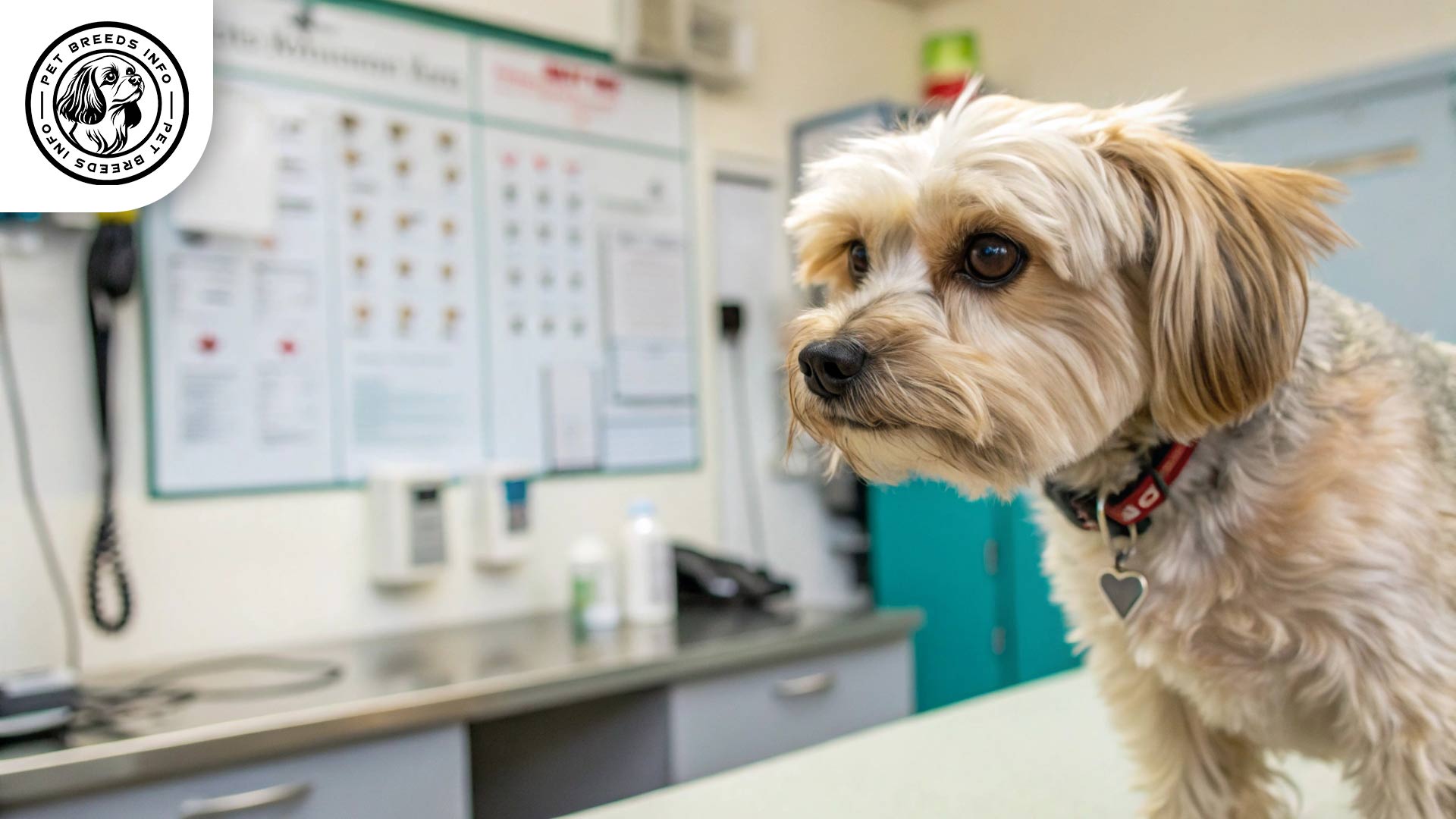
Training and Behavior Management
Yorkipoos are generally easy to train due to their intelligence and eagerness to learn.
Positive reinforcement techniques such as praise and treats work best.
Early socialization and training help prevent separation anxiety and stubborn behaviors.
They respond well to consistent commands and structured routines.
Interaction with Other Animals and Humans
The breed is generally good with children, but supervision is recommended with young kids due to their small size.
They usually get along with other pets, especially if introduced at an early age.
Yorkipoos make excellent companions for individuals, couples, or families.
They are highly attached to their owners and thrive on companionship.
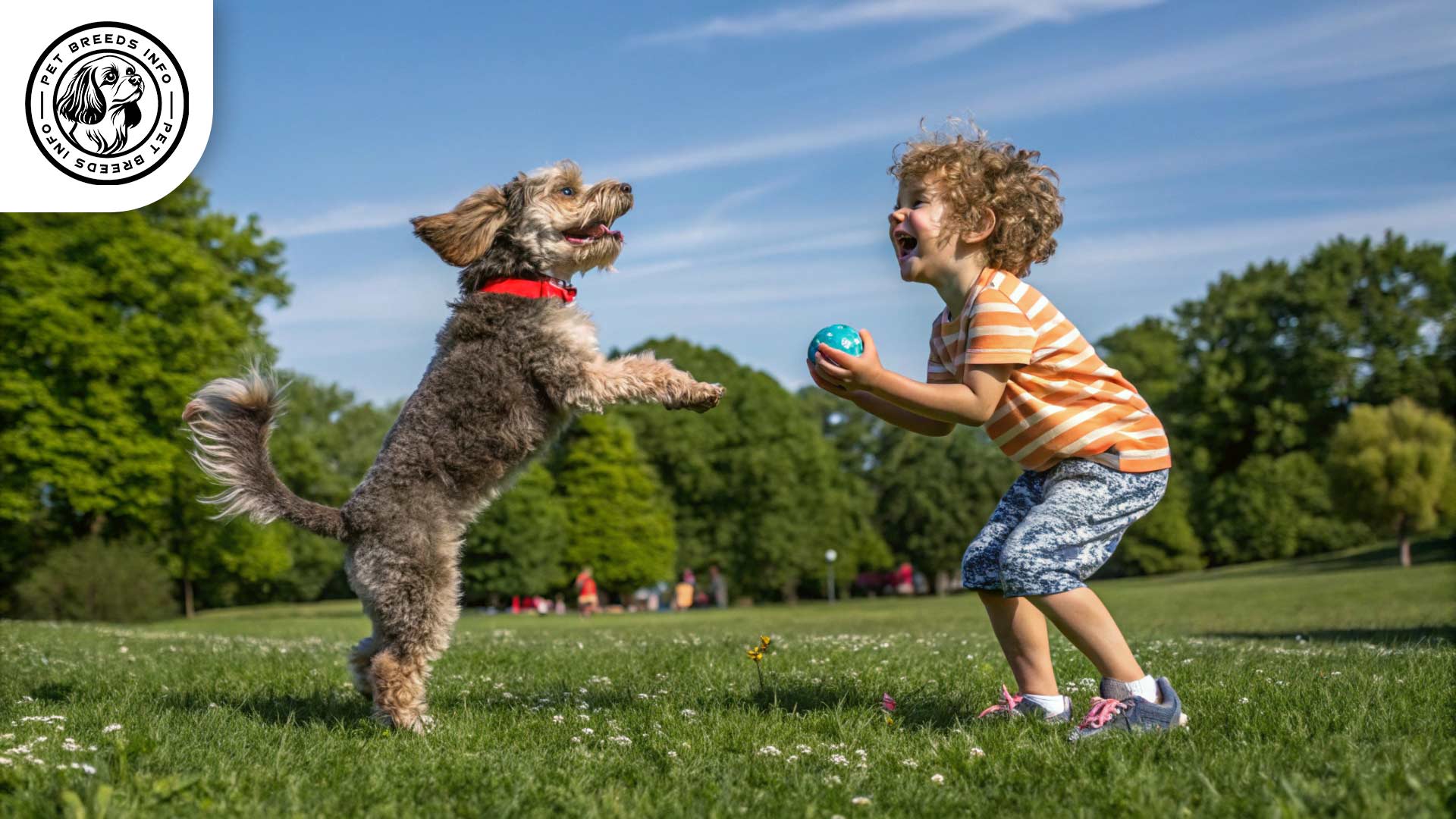
Price and Availability
The price of a Yorkipoo varies depending on the breeder, location, and pedigree, typically ranging from $500 to $3,000 USD.
Adopting from a shelter or rescue organization is a great option for those looking to give a Yorkipoo a loving home.
Potential buyers should ensure they source their dog from a reputable breeder who focuses on health and ethical breeding practices.
Read More: Chorkie Dog
Conclusion and Final Thoughts
The Yorkipoo is an excellent choice for those seeking a small, intelligent, and affectionate companion.
They are well-suited for apartment living but require regular mental and physical stimulation.
While they are relatively low-maintenance, regular grooming and veterinary care are necessary.
Prospective owners should consider their energy levels, need for companionship, and sensitivity before bringing one home.
With proper love and care, a Yorkipoo can be a delightful and loyal family member for many years.
FAQ
How big do Yorkipoos get?
Yorkipoos are small dogs, typically weighing between 4 to 15 pounds and standing 7 to 15 inches tall.
Are Yorkipoos hypoallergenic?
Yorkipoos are considered low-shedding, which can be beneficial for people with allergies, but no dog is truly hypoallergenic.
How much exercise do Yorkipoos need?
They have a moderate to high energy level and require regular exercise, such as short walks and interactive play sessions.
What health problems are Yorkipoos prone to?
Common health concerns include patellar luxation, hip dysplasia, dental issues, allergies, and sensitive stomachs.
How much does a Yorkipoo cost?
The price of a Yorkipoo typically ranges from $500 to $3,000 USD, depending on the breeder, location, and pedigree.
